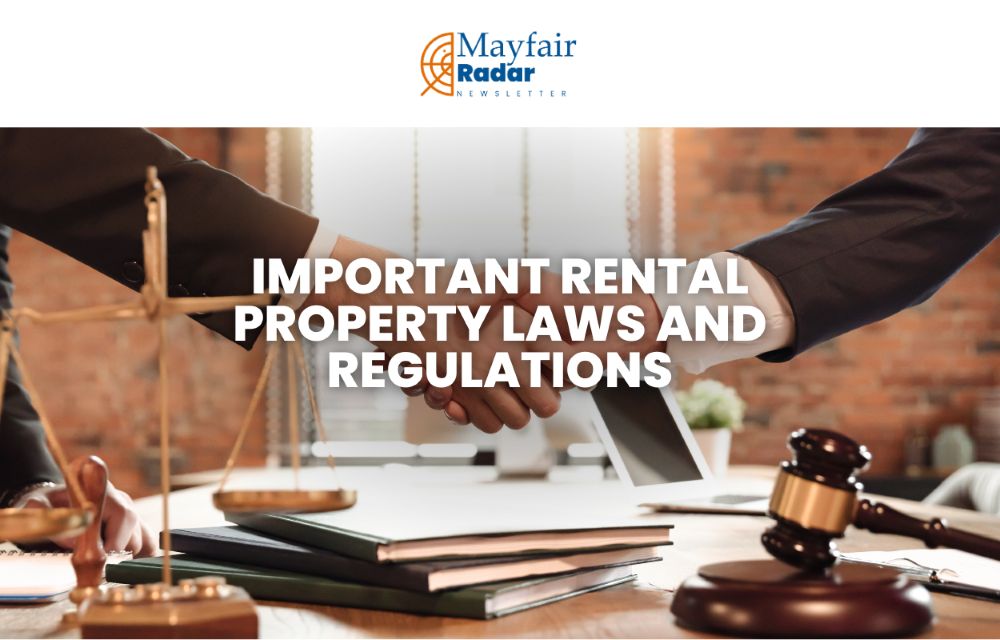Essential Rental Property Laws Every South Florida Investor Should Know
As a real estate investor in South Florida, staying informed about the latest rental property laws and regulations is crucial for protecting your investments. Understanding your rights and responsibilities as a landlord, as well as those of your tenants, will not only help you avoid legal pitfalls but also ensure that your rental business operates smoothly. In this blog, we will explore the key rental property laws that every South Florida investor needs to know in 2024.
1. Florida Landlord-Tenant Act
The Florida Landlord-Tenant Act outlines the basic rights and responsibilities of both landlords and tenants. As a property owner, it’s essential to familiarize yourself with the rules around lease agreements, rent payments, and eviction procedures. This law governs the terms of rental agreements and helps resolve disputes between landlords and tenants.
Key Points to Remember:
- Lease terms should be clearly stated, including the rental amount, due dates, and any applicable fees.
- Rent must be paid on time, and landlords are prohibited from increasing rent arbitrarily without notice.
2. Security Deposit Regulations
In Florida, security deposits are subject to specific rules to protect both landlords and tenants. Florida law allows a landlord to collect a security deposit of up to two months' rent for an unfurnished property and up to three months' rent for a furnished property.
What You Need to Know:
- You must notify the tenant in writing within 30 days of receiving the security deposit about where the deposit is being held.
- The deposit must be returned within 15-30 days after the tenant vacates, minus any legitimate deductions for damage or unpaid rent.
3. Fair Housing Act Compliance
The Fair Housing Act (FHA) is a federal law that prohibits discrimination based on race, color, religion, sex, national origin, familial status, or disability. It’s crucial for property managers and investors to be aware of these regulations to ensure equal treatment of all prospective tenants.
Important Considerations:
- Discriminatory practices during tenant selection—such as refusing to rent to someone based on their race or familial status—are illegal.
- Advertising must not contain language that could be perceived as discriminatory.
4. Notice Periods for Lease Termination
In Florida, proper notice is required when terminating a lease agreement, either to evict a tenant or not renew a lease. The notice periods depend on the type of lease agreement and the reason for termination.
Key Notice Requirements:
- For a month-to-month lease, a 15-day notice is required before ending the lease.
- For fixed-term leases, landlords must wait until the lease expires or reach an agreement with the tenant.
5. Eviction Procedures
Eviction in Florida is a legal process that requires landlords to follow specific steps. It’s crucial to adhere to the state's rules when evicting tenants to avoid complications or potential lawsuits.
Eviction Process Overview:
- Nonpayment of Rent: A landlord must provide a 3-day notice before proceeding with eviction for nonpayment of rent.
- Violation of Lease Terms: If a tenant violates the lease terms, a 7-day notice must be given for minor violations. Major violations can lead to immediate termination.
6. Rental Agreements and Lease Clauses
In Florida, a rental agreement must be in writing, especially for leases longer than one year. Clearly outlining the rights and duties of both parties helps prevent future legal issues.
Common Lease Clauses to Include:
- Rent amount, due date, and late fees.
- Responsibilities for repairs and maintenance.
- Terms for lease renewal or termination.
7. Entry and Inspection Rights
Landlords have the right to enter their rental property, but Florida law requires that tenants be given proper notice before entry. Generally, 12 hours' notice is considered reasonable.
Considerations for Property Inspections:
- Inspections should be for legitimate reasons, such as repairs or checking on the property’s condition.
- Entry should occur during reasonable hours unless there’s an emergency.
8. Local Ordinances and Regulations
In addition to state laws, it’s important to be aware of any local ordinances or regulations in South Florida that might affect your rental properties. Some counties and cities have additional rules regarding rent control, short-term rentals, or zoning.
Stay Updated:
- Regularly check for updates on rental regulations in your local area, as ordinances can change frequently.
- Work with a property management company that is knowledgeable about local rules and can ensure compliance.
Conclusion
Being a successful real estate investor in South Florida means staying up to date with the latest laws and regulations governing rental properties. By understanding the key rental property laws outlined above, you can better protect your investments and ensure compliance with the law. Whether you're dealing with leases, security deposits, or tenant rights, knowledge is your best tool for success in property management.
If you need assistance navigating these laws, Mayfair Property Management is here to help. Our experienced team can guide you through the complexities of rental property management and ensure that your investments remain protected.
Sources
Florida Department of Business and Professional Regulation. (2024). Florida Landlord-Tenant Law. Retrieved from https://www.myfloridalicense.com
U.S. Department of Housing and Urban Development. (2024). Fair Housing Act. Retrieved from https://www.hud.gov/program_offices/fair_housing_equal_opp/overview
Florida Statutes. (2024). Chapter 83: Landlord and Tenant. Retrieved from https://www.leg.state.fl.us/statutes


